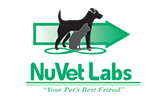Dogs with Digestive Issues: You Can Help!
Dogs with Digestive Issues: You Can Help!
Many canine breeds are susceptible to digestive issues. The size of your canine companion can play a part in this, as well. It seems that many very large dogs, as well as many very small dogs have digestive issues.
If your furry friend is having some tummy troubles, the following tips can help you figure out what is going on and how to help your fur baby feel better.
Vet Visit
It is always helpful to get the advice of a trusted veterinarian. Many dog parents prefer to try a few home remedies first. However, if your dog’s digestive issues worsen, you should make an appointment with the veterinarian.
If your canine companion is experiencing any of the below signs of digestive issues, a vet appointment is recommended.
- Vomiting
- Diarrhea
- Lethargy
- Loss of appetite
- Significant weight loss
- Change in stool type
When in doubt, ask your veterinarian! If you are unsure if these digestive issues are really a problem, or if your dog is just having an off day, call your vet’s office and explain why you are concerned. They can suggest a plan of action.
Pet Food
Many times, the answer to tummy troubles may be as simple as a change of food. Sometimes a particular food just won’t agree with your pooch’s stomach.
If you recently switched brands or types of food, this is probably the cause of your dog’s tummy problems. Even if your pet has been eating the same food for years, this could also be the culprit.
Once in a while, a dog food company will add or remove ingredients, or completely change the formula of a food. For more information on your dog’s current brand of food, or to choose a new one that might work better for his dietary needs, visit DogFoodAdvisor online.
Sneaky Dogs
Pet food is not the only type of food that can upset your pet’s stomach. Fido can sneak into the trash when you aren’t home, or steal a table scrap when you get up for a glass of water. The scraps of food eaten throughout the day can easily cause temporary digestive issues.
If your pet is unable to get these troubling foods out of their system, make an appointment with your veterinarian.
Supplements
Another way to help reduce tummy upset in your best friend is to add a supplement to their diet. Sometimes, commercially prepared pet foods just don’t have everything a dog needs to live up to his potential and enjoy good health. Choose a supplement that is made of highest quality ingredients, and is manufactured in the United States to help your dog’s systems function properly.
One supplement that works well and gets great reviews from dog parents is NuVet Plus. NuVet Plus works to support your pet’s overall health from the inside out, and can help improve digestion.
For more information on NuVet Plus, including a list of NuVet ingredients and real-life stories from dog parents like you, visit us online. You can also place an order for the NuVet Plus wafers or powder at https://www.nuvet.com/products.html.
Your pet deserves the best you can provide, and NuVet Plus can help you do that. Visit NuVet on Twitter to learn more.
Exercise
There are several types of animals that must have daily exercise to keep their digestive system functioning properly. Horses, in particular, are very prone to digestive troubles if they aren’t up and moving enough. Did you know that this can also have an impact on your dog?
Helping Fido’s tummy can be as easy as incorporating one or two short walks into his daily routine. It’s a win for both of you – he gets the exercise he needs, and you get some fresh air and sunshine. As an added bonus, both of you might lose a pound or two and make some friends in the neighborhood in the process.
Hopefully the tips above will help you care for your furry friend! For more information about Fido, and how to optimize canine health, visit the NuVetonline blog.




